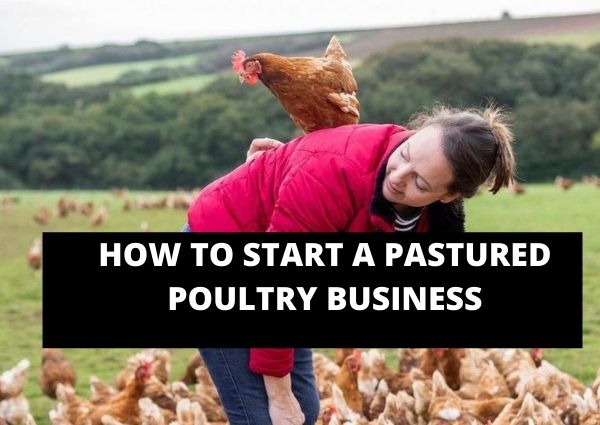How To Start A Pastured Poultry Business
How To Start A Pastured Poultry Business
Through proper management, sustainable poultry farming integrates birds with the farm and land in a way that benefits the health and well-being of the birds, the land, the farm, and the farmer.
What are the advantages of keeping pastured chickens
Pastured chickens contribute to a sustainable farm by producing eggs and/or meat, improving soil fertility, and controlling weeds and pests. Some of the advantages of rearing chickens on pasture include: Farm soil fertility has improved, as has disease prevention. Poultry graze on weeds and insects, which helps manage crop pests, and also boost soil fertility by working their manure into the soil. Birds can be cycled onto grassland after other animals to control fly and parasite problems (such as cattle).

How should pastured poultry be raised?
In pastured poultry farming, the primary goal is to provide fresh pasture to the birds every day or every few days. As a result, a building and/or pasture design that moves easily and lets the chickens to graze and benefit from periodic new pasture (sometimes referred to as “chicken tractors”) is an important feature of a pastured poultry farm. Andy Lee, a novelist and producer, developed the term “chicken tractor” to describe any type of mobile poultry housing that allows birds access to pasture or a garden area. This type of housing allows the chickens to work the land like a tractor, eradicating weeds and insects while also delivering natural fertiliser in the form of faeces.
How to Start a Successful Pastured Poultry Business
Step 1: Evaluate your objectives and resources. Begin by evaluating your own business objectives (income, time availability, lifestyle, and so on) and compiling a list of your available business resources (your labour and that of your family.
Step 2: Make a financial plan. Make a list of everything you’ll need for your pastured poultry operation, including chicks or pullets, brooders, feed, housing, pasture, fencing, feeders and waterers, processing equipment, product transportation, farm stand fees or rent, and employees. Assign a monetary value to each item; the total monetary value of the list will indicate how much money you’ll need to start your firm. This budget can aid you in determining the initial size and scope of your company based on your goals and resources.
Step 3: Select your breeds. You’ll need to choose the ideal layer or broiler breed(s) for your purposes after you’ve decided on the commodities you’ll offer and the initial scale of your firm. The Cornish Cross is a popular meat bird among pastured poultry farmers because it grows quickly and has a well-known flavour. Crossbred birds lay more eggs and produce more meat than purebred fowl. However, beneficial qualities that have been “selected out” in favour of meat and egg production, such as foraging abilities, disease resistance, and climate change adaptation, are being lost in these newer types.
conclusion
One of the most major advantages of raising poultry is the ability to change time and labour requirements as needed after a management routine is established. Some poultry producers start with supplemental off-farm income and work their way up to full-time farming. Joel Salatin, for example, has mastered the technique of raising hens for profit. A few hundred or a few thousand birds, on the other hand, may boost your revenue and operational variety with a minimal investment of money and time in a well-planned, environmentally friendly business.
